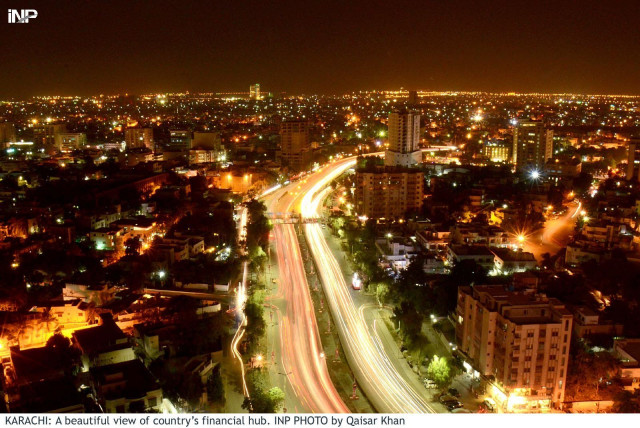Economic policy should be at forefront of coming elections
For a nation facing structural, functional and systemic crises, economic delivery is crucial

For a nation facing structural, functional and systemic crises, economic delivery is crucial
PHOTO: INP
Pakistan had seen a surge of violent extremism and terrorism in the years preceding 2013 and was declared the world’s most dangerous place. The country’s growth rate had plummeted to less than 3% and electricity outage was at its peak, crippling the economic infrastructure of the country.
Five years down the line, we can say with confidence that the PML-N administration has kept its promise on these priorities. The economic growth rate has doubled to about 6%. The violent extremism has seceded, and we should now rejoice emergence of democratic movements from terror-stricken areas. Electricity outages are fewer with new generation in the pipeline.
Sattar threatens protest outside CM House, K-E office over power loadshedding
None of these achievements is without a ‘however’. One can easily point out that the challenge thrown by extremism is hardly over. It is also a no brainer to see that economic growth is largely driven by infrastructure, which is considerably leveraged. And finally, it’s obvious that while electricity outage has reduced, the inherent weaknesses in the distribution system have not been addressed.
Notwithstanding these nuances, we should acknowledge that three main challenges that the nation faced five years ago – extremism, energy and economy – no more exist, or at least have become far less severe. For a nation facing all sorts of structural, functional and systemic crises, this is a moment to rejoice and repose confidence in the democratic dispensation which has delivered. This is not a moment to destabilise the system.
Pakistan needs at least 10 more years of high growth to catapult to middle-income status. It took 15 years to treble the per capita income to the current level but almost seven years of this period were characterised with low growth. To reach the goal of $5,000 per capita, Pakistan needs to maintain a growth rate of 7% for the next decade, provided inflation remains low.
Pakistan does not need to rely solely on foreign sources of capital, through trade and investment. Pakistan needs to truly explore domestic commerce, something which economist Nadeemul Haque has argued strongly. The political competition which Pakistan should cherish is a very suitable framework for domestic commerce, for which cities become the centre of growth. Peshawar should compete with Lahore and Quetta should compete with Hyderabad. Each political party should get an opportunity to make the best use of mandate it receives to govern.
In this backdrop, the recently released report by PRIME Institute on the competitiveness of cities, and their relative ranking, offers very interesting reading.
Pakistan has 11 cities with more than one million population and two cities with more than 10 million. These offer enormous opportunities for businesses especially as a majority population of these cities now enjoys middle-income status. A country with possibly 100 million people with the middle-income status should be imploding with education, enterprises and entertainment.
Like each nation, we have a multitude of challenges. But in my view, nothing is as paramount and as grave as our economy.
Will turn Karachi into New York if elected to power, vows Shehbaz
As Pakistan prepares for the next elections, everything else must be put on the back burner. The next elections have to be fought on which party or which candidate is well prepared to improve our economic situation. Which party can make responsible promises for jobs creation? Which party can solve water crisis that is looming large? Which manifesto has better ideas to deliver mass transit schemes? Which party can show more seriousness on work force development? Which party can exhibit ability to restore our industrial capabilities? Which party can help improve agriculture productivity?
It’s not just in the interest of businesses that the politics must become more mature towards economic policy but also in the interest of other institutions. A weak and indebted economy cannot afford a big army, which we need. An under-funded state can never provide a decent social infrastructure for its citizens including a reliable and accessible judicial system. All institutions and all voters must be on the same page – and together we must be clamouring for sound economic policies.
Political competition should not be on ideology or on the embedded group interest. It must shift towards economic delivery. Nothing short of a national consensus on “it’s economy, folks” can help us keep on track, and continue to reap the benefits from a far more peaceful, more powerful and a more resourceful Pakistan we are today, than we were five years ago.
The writer is founder of PRIME Institute, an independent think tank based in Islamabad
Published in The Express Tribune, April 23rd, 2018.
Like Business on Facebook, follow @TribuneBiz on Twitter to stay informed and join in the conversation.


















COMMENTS
Comments are moderated and generally will be posted if they are on-topic and not abusive.
For more information, please see our Comments FAQ